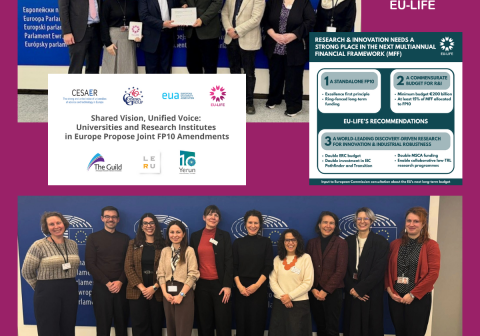The Power of Change Management in Technology Platforms
An advanced study developed by the EU-LIFE Core Facilities Working Group (CF WG) on the management of scientific technology platforms was published today in EMBO reports. The paper provides useful insights into the lifecycle of these essential facilities, from their creation to their closing, and three examples of economic and technical challenges faced by research institutes of the EU-LIFE alliance.
“Being prepared to adapt and change according to organisational need is essential but managing change can be challenging for everyone. The paper was written to support colleagues throughout the life of a core facility, based on lessons from our shared experience. It is not prescriptive, instead it provides a context-agnostic framework managers can use to help navigate through complex situations,” said Danielle Hoyle, Head of Research Operations & Deputy Director of Operations at The Babraham Institute and co-chair of the CF WG.
The CF WG was established in 2015 to create a forum to discuss the challenges of core facilities or technology platforms. These are centralised resources in science research institutions providing cutting-edge technology and expertise to a broad range of users. One of the defining characteristics of core facilities is the constant need to adapt to a changing context conditioned by technological and scientific developments, economic factors and a fluctuating internal demand, among others.
Consequently, institutional and facility management has been one of the focus of discussion and practice sharing in the CF WG. This exchange led to the publication of a set of principles and recommendations for the core facility lifecycle with the aim to support organisations through these type of processes. The document describes the phases and relevant considerations in key life cycle phases, from the first idea, through planning, implementing, running, consolidating and even closing a facility.
Following up those guidelines, a group of CF WG members authored a paper that was published in the journal EMBO reports. The paper presents an in-depth analysis of how change management methods can be used institutionally to successfully adapt core facilities, and includes three case studies from EU-LIFE member institutes:
- how CEITEC repurposed a facility declining in use (Czech Republic);
- how VIB met the increasing demand for bioinformatics analysis (Belgium); and
- how The Babraham Institute dealt with a financially unsustainable DNA sequencer (UK).
The paper, titled "Unlocking Success. The power of change management in core facilities" is available in this link: https://doi.org/10.1038/s44319-025-00445-1



